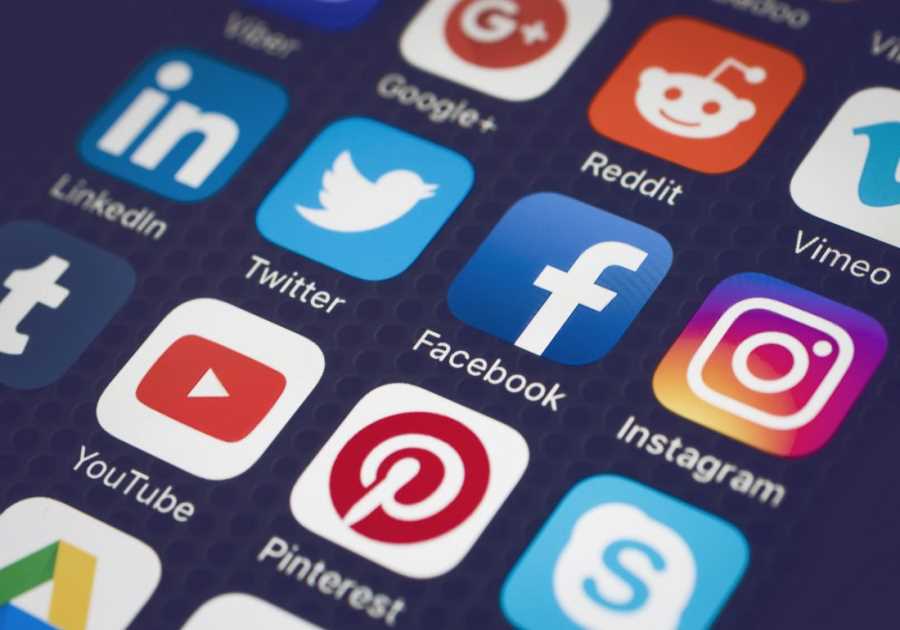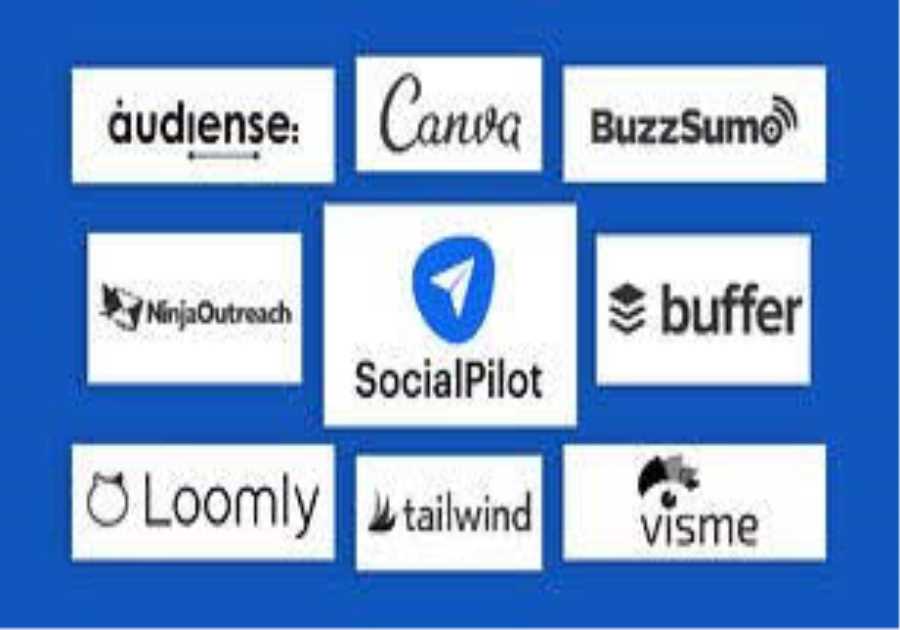
In 2020, the world had to take a big leap forward in digitization, and many sectors had to adapt, including marketing and communication. Fueled by the constant evolution of technology, social networks benefit from an endless stream of new trends, features, and platforms.
After a year under the onslaught of a global pandemic, the trends are changing. More than ever, social networks are a link to animate its community and even expand it.
Thanks to them, you will be able to generate more and better-qualified traffic, you will be able to attract new targets and retain your customers. However, to achieve this, you must also take into account new trends. In this blog post, we review 10 social media trends for 2021.
10 Social Media Marketing Trends for 2021
Social networks have become a very important pillar of digital marketing. It is difficult to find a marketing strategy that does not include the use of social networks (Instagram, Facebook, Twitter, LinkedIn …) However, for the use of social networks to be effective and the strategies implemented to be solid it is vital to know the factors that will shape these platforms during 2021:
Social SellingSocial selling is not just the creation of social media profiles by your marketing and sales teams. Social selling is a process of finding, selecting, listening to, and interacting with potential prospects through social media. It makes it possible to detect, accelerate and/or develop business.
In recent years the use of Social Selling has grown a lot, promoting electronic commerce within social networks. This, without a doubt, marks the future and trends of social media since it helps that users of social networks do not have to leave a platform to make a purchase. And not only this. From 2020 we will be able to see how different social networks launch new e-commerce functions so that companies can sell their products, as for example, Instagram Shopping did.
The recent explosion in social selling reminds us that shopping has always been a social experience. And given the wealth of opportunities for brands today to make sales, social feeds are fast becoming the more modern way than to get to the mall.
Use of Audiovisual ContentAudiovisual content will continue to top the list of main trends in social networks during 2021. Some experts already predict that about 80% of the content we consume will be video in the coming years. The main reasons why video is positioned as one of the great trends are the following: audiovisual content is much more attractive and, also because nowadays it is easy to do with medium and high-quality smartphones.
You know, video is the queen of the web! It is found everywhere: on websites, social networks, YouTube-type hosts, marketing campaigns; and for your content to have a chance of being seen by the most people, you must optimize it according to the algorithms of each platform. Each channel has its preferred codes and formats, and this year the algorithms will be even more demanding. The trend is towards VSEO (Video Search Engine Optimization). This practice refers to optimizing audiovisual content to make it stand out highest in search results.
Use of Artificial IntelligenceAI is gaining importance in content marketing. It makes it possible to target an increasingly precise audience but also to create content. This latest trend is expected to take hold in 2021. While machines are still struggling to replace humans when it comes to pure writing, AI tools like Copy.AI are already helping to prepare advertisements or newsletters.
Online background removal tools also help create images that can be used for social media marketing campaigns. Artificial intelligence is therefore, becoming a powerful ally for publishing content on a large scale and ensuring global visibility.
Collaborating with Micro-influencers and Virtual influencersIn 2021, two important figures in the world of social networks are expected to occupy an important place: micro-influencers and virtual influencers.
Virtual influencers are humanoids who are succeeding on social media. A clear example is Lil Miquela, a virtual influencer who has already been trusted by major brands in the world of fashion. These influencers, not being human, do not make mistakes or get carried away by emotions, which is why brands trust them so much.
The phenomenon of micro or nano-influencers is not new but continues to develop at a rapid pace. With a more limited but also more targeted audience and thanks to their level of engagement often higher than influencers with a greater number of followers, micro or nano-influencers are ultimately more influential. On the other hand, because these influencers create their own content and directly manage their accounts, they are able to convey a more personal and authentic tone that resonates with their followers. It’s also easier for brands to get in touch with them.
In 2020, 46.4% of brand mentions with the hashtag #ad were posted by Instagram accounts with between 1,000 and 20,000 followers (classified as micro-influencers). In 2021, HypeAuditor predicts that more brands will collaborate with micro-influencers, and the paid placement share featuring #ad will increase to 50%. As a result, with brands opting for more sophisticated partnering strategies, influencers will specialize more on a particular topic. Thus influencers developing more generic content will become scarce.
Instant Messaging AdvertisingWhatsApp’s announcement that, in 2020, it would begin to include advertising in the app, has generated great excitement and expectation, due to the accumulation of opportunities and avant-garde that this represents.
The challenge is great because, although Facebook and Instagram already have the stories feature, it is true that WhatsApp is an app of a different nature and use, so it will be necessary to find a way to encourage the user to constantly visit this section; there are still a lot of people who never take a tour of this section.
On the other hand, as we know, Facebook Messenger already has different advertising formats that range from sponsored messages, messages sent by brands with which the user has already interacted, in addition to Facebook ads with a button to start a conversation via Messenger to request more information.
In addition to advertisements, brands can give other uses to instant messaging applications (WhatsApp, Facebook Messenger, or Telegram) in the same way that email marketing or SMS marketing campaigns are carried out; that is, creating a subscriber database to send them regular communications that add value. Among the brands that have already engaged in these practices with great success are KLM Airlines and Hellmann’s.
Augmented RealityAugmented Reality (AR) is one of the most exciting social media trends nowadays. This technology is not only limited to games. It is also applied in different applications both desktop and mobile, eCommerce, and in product marketing.
Spark AR by Facebook is an upcoming social media content creator that enables you to create and apply AR filters for your social media posts. It is a powerful tool designed for the Facebook camera and allows you to distribute it to other social media platforms like Instagram and Messenger. You can check out the latest experiments and filters for this tool through joining Spark AR’s community on Facebook.
Virtual realityVirtual Reality creates a different experience compared to AR as it requires one to immerse into a completely different world or environment. By letting consumers virtually experience a product, place, or a device’s functionality, it can enhance significantly their interest and makes your product more exciting and share-worthy.
Good VR technology investments can surely amplify your social media presence. This video by Mbryonic enumerates some of the most exciting VR marketing campaigns that you can also take inspiration from and apply on your own marketing campaigns.
User-generated contentRelying on the content of followers has many advantages for companies. Among them, it stands out that they generate greater trust and this has an impact on engagement. Don’t confuse this trend with the influencers’ trend. In this case, we are referring to fans of a brand who publish their opinion about the brand, about a product or service, etc.
Because of the reputation of devices like Reels from Instagram or Stitch from TikTok, UGC(User Generated Content) has attained a higher degree of personalization. Thanks to these tools, which have removed technical barriers, anyone can easily remix or adapt content from other users and share it on networks to express their ideas, opinions, and points of view. As a brand, you should make things easier for your audience, create content that can be mixed and provide your brand resources to users.
PersonalizationTo offer customers what they want, personalization will prevail throughout 2021. ‘Social listening’ allows companies to know the reputation of the brand and, above all, the mentions that users make of their brand and products. All this allows the services and products to be offered to the client in a more personalized and effective way.
This is the case of search engines with recommendations. One of the clearest examples of personalization can be found in the content catalog that Netflix offers its users, with which it recommends series and movies based on the content they consume. Personalized marketing is also applied through the sending of emails based on user behavior. That email that you receive in your mail, reminding you that you have left several items in the basket and that you are one click away from getting them.
Tools based on artificial intelligence allow you to reach high levels of customization. Although if you want to start with simple tools that allow you to identify, capture and interact with your users, you can bet on online marketing campaigns. For example surveys, quizzes, voting, etc.
Social welfareWith social welfare, the study refers to the awareness that is generated about the impact of social networks on our mental health. According to the statistics of the analysis, this year there were 78.0K conversations about well-being on social networks. In fact, National Disconnection Day garnered more than 3.3K mentions (the use of the #DigitalDetox hashtag should be noted).
This is also related to one of the novelties of the year and that is that Instagram is already trying to hide the likes to avoid the pressure of the exposure of popularity among users. “Increased awareness of the link between social media and mental health means that users are more aware of what they allow to influence them and more skeptical than before.” (Jualia Bramble from Bramblebuzz.co.uk).
Our challenge as brands in the networks is to avoid toxicity, content saturation, and, consequently, misinformation; but also draw the attention of our followers promoting a healthier life. Quality will be the protagonist over quantity.
The Power of Social Media
Social networks like Facebook, Instagram, Twitter, and Pinterest, etc. are gradually establishing themselves as intermediaries between the media and their readers. Here, we have 5 points that display the power of social media:
Social Media as a Marketing ChannelThere are several ways on how this can be. Market research, brand recognition, lead generation, relationship development, customer service, etc. These are the best ways that social media can help people and organizations connect online to share information and ideas.
While networks like Facebook, Twitter, and LinkedIn are not the oldest form of social networks, they definitely define them now. These channels started as relatively simple services, but these days, since the mobile internet innovation, these systems have transformed into focal points that change every facet of modern life – from checking the news, posting holiday photos, to browsing for jobs and careers – into a communal encounter. If you’re not already using these core networks as part of your social media marketing plan or looking for ideas to improve your existing strategy, you’ll find a wealth of information in our guides for Facebook, Twitter, and LinkedIn.
Social Media as Multimedia Content Exchange NetworksMedia sharing networks offer people and brands a place to find and share media content online, including photos, video, and live video. The distinction with social sharing communities from social media is still blurry since social networks such as Twitter and Facebook add augmented reality, live video, among other media utilities to their program. However, what distinguishes media content sharing networks is that media content sharing is their defining and primary goal.
Similarly, on sites like YouTube and Vimeo, video is the primary mode of communication.
When determining whether or not your business needs to establish a presence on a media sharing network, it is important to consider your available resources. If it’s that one element that very successful platforms like Instagram and YouTube have in their arsenal, it’s a well-planned objective and meticulously mapped multimedia resources that strictly follow a specific theme.
Social Media as a Platform for Information ExchangeThese networks can be excellent resources for market research. If used properly, you can also advertise on them, although you will need to be careful to separate your ads and posts. Discussion boards are one of the oldest forms of social media. Before we connected with our first friends from college on Facebook, we would talk about pop culture, current issues, and ask for help on forums. Observe the massive, widespread consumer rates on forums such as Quora, Reddit, and Digg. You will discover that the populace’s desire for cumulative information and insight remains steadfast.
Social Media as Bookmark Networks and Content OrganizersThese networks can be highly effective in driving brand awareness, customer engagement, and website traffic. Content organizing and bookmarking networks help people discover, save, share and analyze new and popular new content and multimedia. These networks are a breeding ground for creativity and inspiration for people looking for information and ideas, and by adding them to your social media marketing plan, you will open new channels to generate brand recognition and engagement with your audience and customers.
Social Media as Consumer Review NetworksPositive reviews present social proof of claims. If they are taken care of well, you can solve the problems of dissatisfied customers. Consumer review networks give people a place to comment on brands, companies, products, services, tourist spots, and just about anything. Consumer reviews through social media networks go one step further by creating networks around the review as a fundamental part of the value they provide.
Your Turn:
So far, the digital marketing trends for 2021 seem to revolve around two different, but almost contradictory, concepts. First, it is a general improvement, focusing on real problems and adapting content to cater to the individual for more intimate engagement, rather than mass allure. The second is a much more mechanical and technical optimization, tweaking areas behind the scenes like SEO and the way campaigns are structured.
Above, we’ve covered 10 of the hottest social media trends for the year 2021, to give you an edge over your competition. Take these marketing trends to heart and consider them when you design your own digital marketing strategy for the new year.
Author Bio:
Yen Pedrajas is an eCommerce and digital marketing writer who loves to share ideas and create strategies about social media and content marketing for start-ups, small and medium businesses. Read her work at Medium. Currently, she manages public relations for Removal.AI, an AI-powered technology that can automatically remove image background and a photo editing software used for photo editing ideally for eCommerce, printing and all other app and web development purposes.
The post Social Media Marketing: 10 Trends in Social Networks That Will Mark 2021 appeared first on Social Media Explorer.






